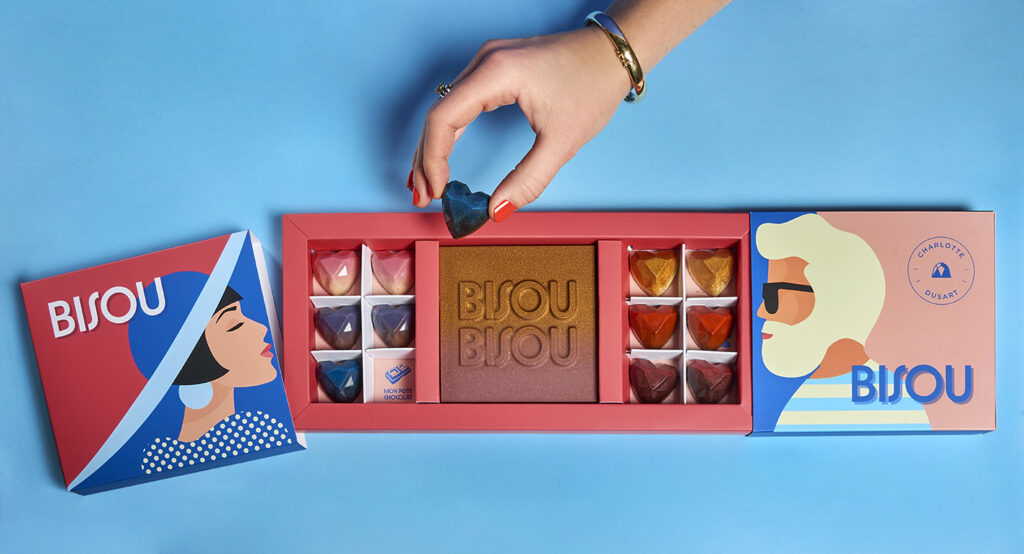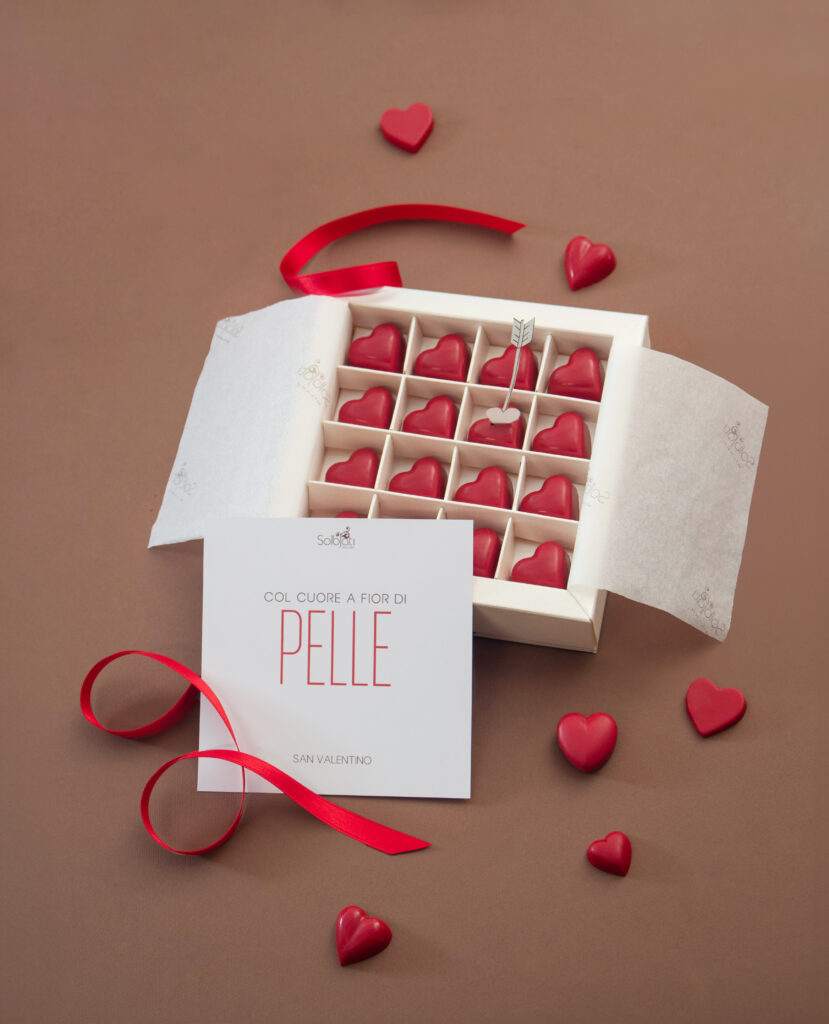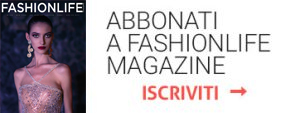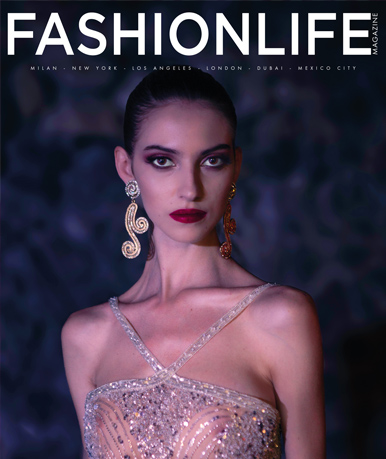
Non è San Valentino se non ricevi un cioccolatino e qui vi suggeriamo qualche idea buona e originale per regalare un pizzico di felicità e amore. Siete pronti a sorprendere ? Buon San Valentino!
- La Limited edition di cioccolatini per San Valentino by Charlotte Dusart https://charlottedusart.com

Bisou Boisou
La chocolatier belga più amata a Milano lancia nuova creazione.
Una boîte rossa e blu elettrico con una cover scorrevole sulla quale sono disegnati due volti stilizzati. Facendo scorrere questa cover, le coppie si mescolano a piacere: il giovane riccio può baciare la donna con la coda di cavallo, l’uomo dalla barba bianca invece può scegliere l’elegante ragazza con cappello, ma è anche il riccio che può baciare il “barbuto”, o la donna con il cappello baciare quella con la coda di cavallo.
All’interno ci sono tre scomparti: nei due laterali ci sono 12 praline a forma di cuore dai gusti irresistibili – Cheesecake & Fragola, Champagne, Caramello & Burro salato con Gianduia croccante da un lato; Cremino bianco, Albicocca & zucchero frizzante, Pralinato al sesamo nero & Passion Fruit, e Pralinato alla Nocciola croccante. Sotto ciascuna una frase spiritosa o deliziosi disegni di cuori e labbra.
Al centro invece, protagonista la Dubai Bar, una spessa tavoletta di cioccolato al latte ripiena di un pralinato di pistacchio, crema di pistacchio e pasta kataifi .
. La choco collezione di Simona Solbiati

https://www.solbiaticioccolato.it
Col cuore a fior di pelle per San Valentino
Deliziose praline a forma di cuore, laccate di rosso intenso con un morbido ripieno disponibile nelle varianti: zabaione, fave di Tonka o peperoncino.
Esprimi un desiderio per San Valentino
Piccoli lucchetti di cioccolato al latte e fondente, accompagnati dalle loro chiavi, racchiusi all’interno di un grande cuore di cioccolato fondente.
. I cioccolatini artigianali di T’a Milano

Selezione Cuori da 25 cioccolatini per San Valentino https://tamilano.com
È un prezioso scrigno a forma di cuore, decorato in oro, che racchiude 25 cuori di cioccolato di qualità. Realizzati con cioccolato Grand Cru proveniente dal Venezuela, lavorato in purezza dai maestri cioccolatieri di T’a Milano sono inno alla dolcezza e al romanticismo

Ciocolips
I cioccolatini di San Valentino come baci.
Divertenti e colorati questi 24 cioccolatini a forma di labbra con cioccolato gourmet velano e morbidi ripieni . La qualità degli ingredienti, la freschezza e la genuinità delle migliori materie prime, la produzione artigianale italiana si uniscono ad un design ricercato
Preparatevi a un viaggio sensoriale dove i colori e i sapori esplodono in bocca con Dark Brown (cioccolato fondente con ripieno all’arancia), Gold (cioccolato bianco al caramello con ripieno al caramello), Red (cioccolato bianco con ripieno fondente), Brown (cioccolato al latte con ripieno alla nocciola), Fucsia (cioccolato bianco con ripieno al passion fruit) e Pink (cioccolato rosa ruby con ripieno al pistacchio).
. Il cioccolato di Fabrizio Racca, pastry chef visionario, per San Valentino

“Ep.2 – Closer Together”
Un raffinato tronchetto al cioccolato fondente e lampone.https://www.fabrizioracca.it/i-miei-desserts/ Racca interpreta l’amore come un concetto universale, libero da preconcetti, e lo traduce in un dessert esclusivo, capace di unire gusto ed emozione.(photo credits Pepe Photography)
. Giacomo Milano

La scatola di cioccolatini e la torta per San Valentino
Gustosi ed eleganti li potete anche acquistare con torta, di color rosso rubino avvolta in una vellutata mousse al cioccolato fondente e un cuore delicato di pralinato alle mandorle con un tocco speziato di zenzero, impreziosito da litchi e una nota di croccante salato. https://giacomomilano.com/it/







